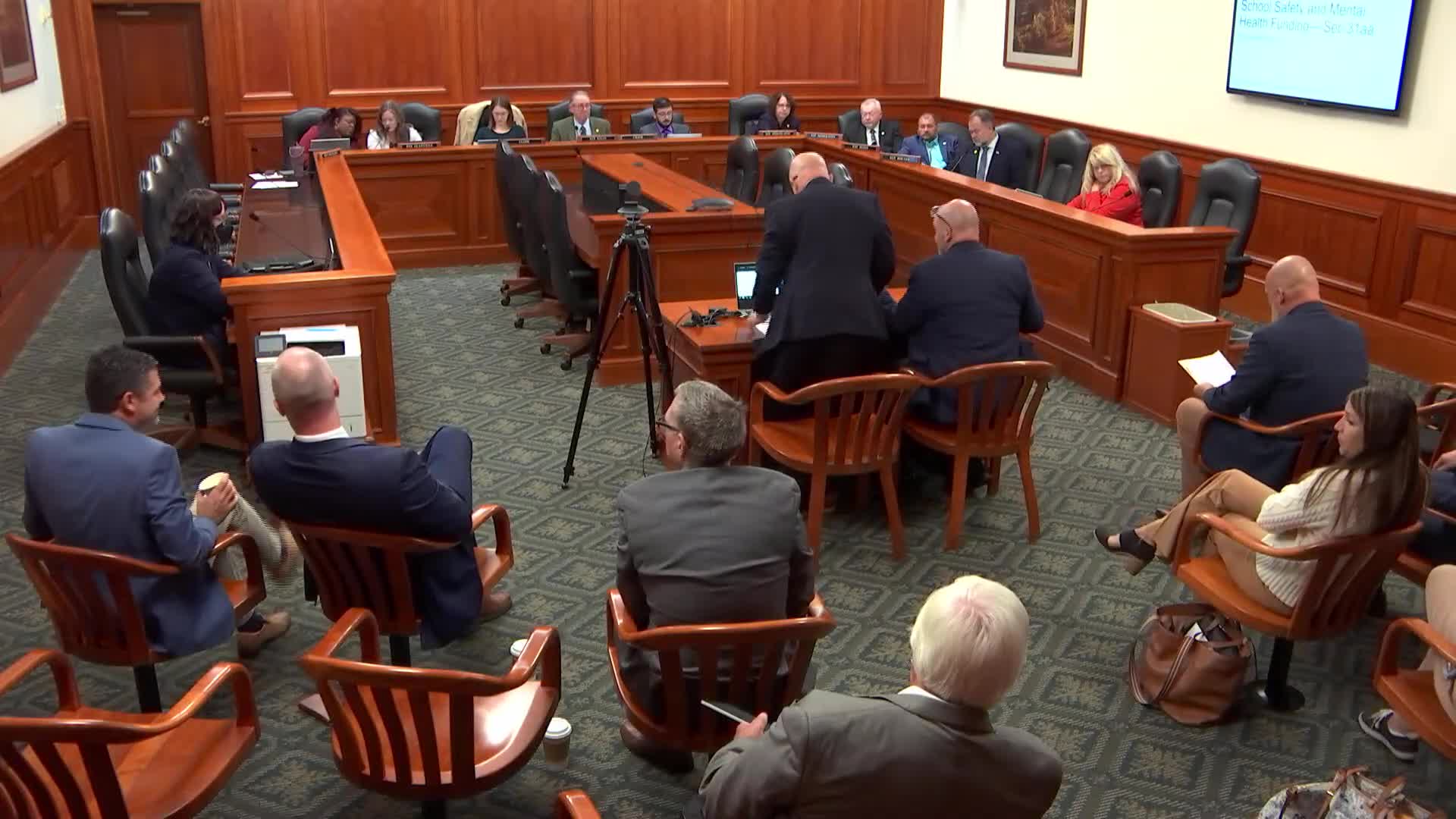Superintendents warn tightened rules and uncertainty for school safety, mental-health funding could disrupt services
Get AI-powered insights, summaries, and transcripts
Subscribe
Summary
District leaders told the House appropriation subcommittee that flexibility granted after the Oxford shooting was narrowed in later appropriations cycles, increasing compliance burdens and causing districts to delay hires and services.
Superintendents and district officials told the House appropriation subcommittee that changes to mental-health and school-safety appropriations since fiscal year 2023 have added reporting requirements and legal triggers that reduce local flexibility and risk disrupting ongoing services.
Steve Archibald, superintendent of South Lyon Community Schools, told the committee that post‑Oxford appropriations initially provided large, flexible, per‑pupil distributions that districts used quickly for evidence-based mental-health supports, safety planning and staff. He said later budget language increased complexity, added approval “choke points” and included conditions that made districts uncertain about sustainability.
“We had large sums of money. We had broad use, and it was readily available for districts to do what they needed,” Archibald said. “Fast forward to today, we've got uncertain dollars going into the future with a lot of choke points and barriers that will prevent us from doing the work.”
Why it matters: Districts said the tightened rules and single‑year funding threaten the continuity of counselors, social workers and psychologists. Without multi‑year certainty, some districts have delayed hires or held positions vacant because they are unsure whether funds will continue.
What Archibald and others said
- FY23 approach: In fiscal year 2023 the mental-health and safety funding (described in testimony as sections 31aa and 97) was distributed widely on a per‑pupil basis with broad allowable uses and limited formal reporting. Districts used funds to add personnel, provide professional development and coordinate with local health providers.
- FY25 changes: Testimony said the FY25 appropriation reduced total funding in July, restored some dollars in October but with tighter rules. Witnesses said related legislative language more than doubled in length and complexity, which increased legal review, reporting and compliance work for districts.
- Local impacts: Archibald said districts surveyed families and found safety and mental health remain top priorities. But tighter funding rules and uncertainty about future appropriations have led some districts to delay hiring counselors and other support staff, undermining continuity of care.
- Equity and access: Witnesses reiterated that competitive grant structures disadvantage smaller districts with limited central-office staff and called for per-pupil equitable distributions or multi-year allocations for critical services.
Committee response and proposals
Members responded to the testimony by discussing possible legislative fixes, including clearer statutory language, multi-year funding, narrower legal triggers for reporting and stronger coordination between legislators and MDE on implementation and waiver processes.
Ending: Witnesses offered technical assistance and asked for prompt legislative review to avoid midyear cuts to mental-health and safety services.
